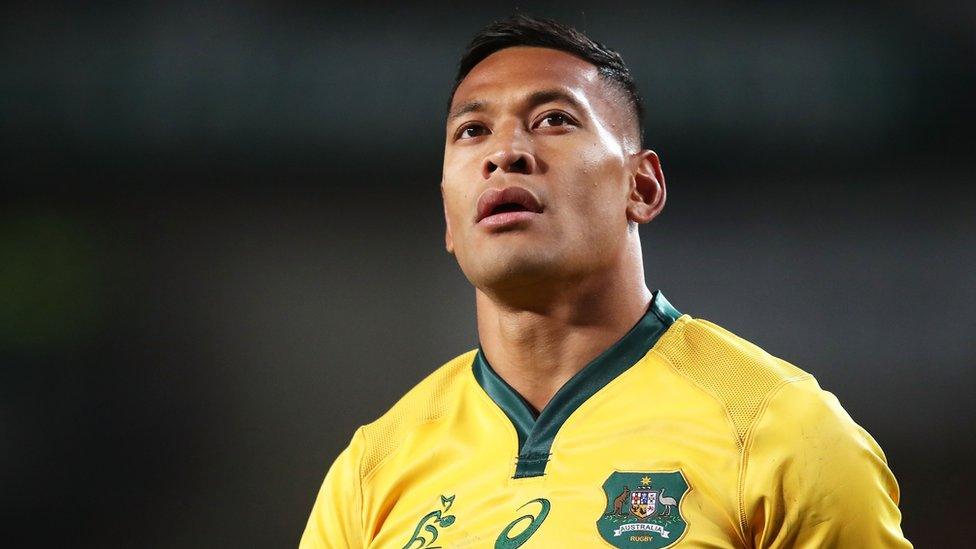Steelers: How anti-gay row inspired rugby film
- Published
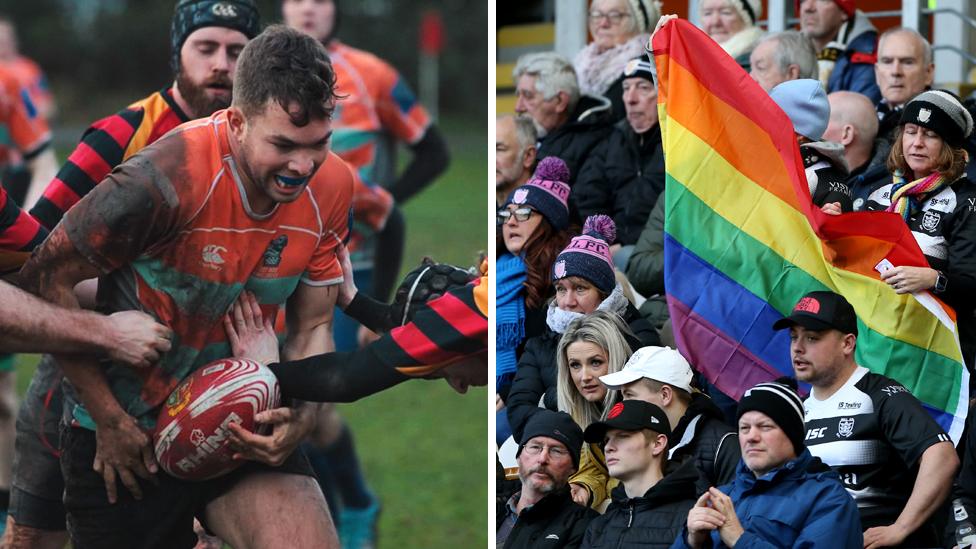
Eammon Ashton-Atkinson (left); and Hull FC rugby league club fans displaying an LGBT inclusive rainbow flag
Conventional perceptions around sexuality, gender and manliness are challenged in a new documentary about Kings Cross Steelers - the world's first gay rugby club.
The film, called Steelers, shows how the club literally saved the lives of some of its players. Yet it was a story that nearly did not get told at all.
Two and a half years ago, a concussion ruled amateur rugby player Eammon Ashton-Atkinson out of the London team's IGR Bingham Cup, external campaign in Amsterdam. So instead of taking his boots to the tournament, the TV reporter took his camera along and put his professional storytelling skills to use.
When he came to piece together the footage of his team-mates, however, he managed to wipe the entire first edit from his computer.
"I was like, 'Oh my god, I can't be bothered starting this again!'" recalls the 34-year-old. "So I sat on it for 12 months and didn't do anything."
Then something happened that drove him to produce another version that was much more personally focused.
Greeted with boos
Israel Folau, the international rugby union star sacked by Rugby Australia for saying that "hell awaits" gay people, was allowed to resurrect his career with a controversial cross-code move to Super League side Catalans Dragons in January 2020.
Folau, a Christian, argued the termination of his contract was a case of religious discrimination and eventually reached a settlement with Rugby Australia.
In a statement the full-back said he had not intended to harm or offend people when he uploaded the post.
"Mr Folau wants all Australians to know that he does not condone discrimination of any kind against any person on the grounds of their sexuality," the statement read. RA said it did not "in any way" agree with the content of the post, adding inclusivity was "core" to the sport, and both parties apologised for "any hurt or harm caused".
But British rugby league grounds greeted the player with boos and a sea of protesting rainbow flags.
"When I saw this Israel Folau thing blow up I was like, 'You know what? I have to tell this story,'" explains the former Steelers player, who now lives and works in the States.
"His bigotry kind of inspired this film in a way and got it happening again. Because there are kids that are seeing what he's saying and it might be affecting them, and I needed to counter that with this film.
"That's when I decided to put my story in it."
'Love letter to club'
The feature, it was announced on Thursday, will get its UK premiere online next month at the virtual Glasgow Film Festival, external, after last year's BFI London Flare Festival, external - where it was due to screen - was cancelled due to coronavirus. The film is narrated by Ashton-Atkinson, whose personal experiences establish its emotional backdrop.
The Australian's own story begins with him as a young rugby-playing kid slowly coming to terms with his sexuality.
He is then callously outed by another guy at school, who records the two of them having sex together and shares it around. The "unrelenting bullying" that followed left "scars" that took him "to the brink".
Years later, seeking an escape from his depressive state, Ashton-Atkinson quit his job and moved to the other side of the world. What he found there was a club full of like-minded competitors who helped him to get fit again, get his life back on track and ultimately meet his future husband, John.
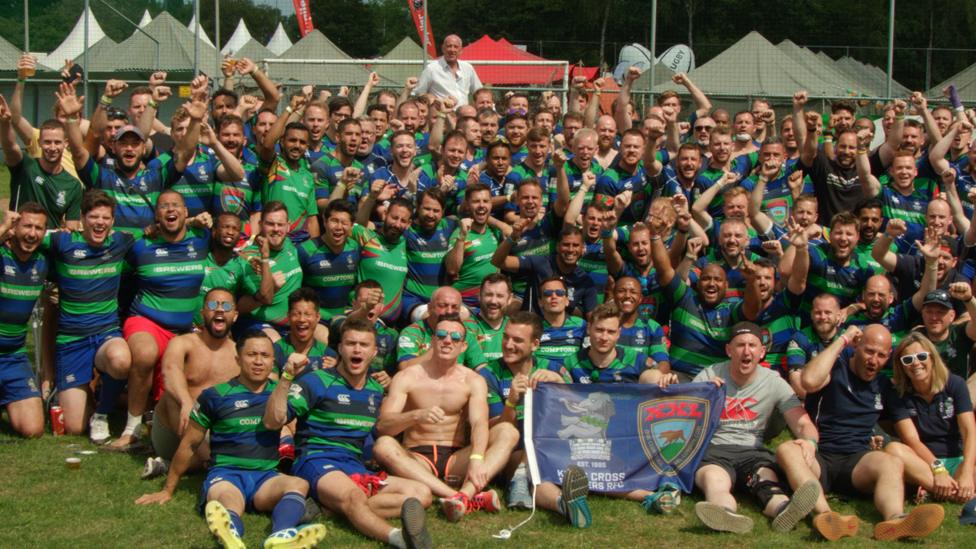
Kings Cross Steelers join with other gay rugby teams at the 2018 Bingham Cup
"I felt like I finally found a place where people liked me for who I was," he explains "It was an incredible feeling.
"It's funny, isn't it? Something that was such a negative in my life, I've been able to turn into this wonderful positive thing with this film.
"The [Steelers] chairman said it's like I wrote this love letter to the club, and I think that's very true."
Allow YouTube content?
This article contains content provided by Google YouTube. We ask for your permission before anything is loaded, as they may be using cookies and other technologies. You may want to read Google’s cookie policy, external and privacy policy, external before accepting. To view this content choose ‘accept and continue’.

Kings Cross Steelers began in 1995, as a group of six friends in a pub discussing the mere possibility of a gay rugby club even existing.
At this point, remember, the first legal same-sex marriages in England and Wales were still almost two decades away from taking place.
The club struggled to find teams that would even play them at first. Now, 25 years later, there are around 80 gay and inclusive rugby clubs worldwide who get together every other year for the aforementioned Bingham Cup.
Covid-19 put paid to the 2020 tournament, as well as this season for Steelers' four men's rugby union teams and development squad.
The documentary follows the team to the 2018 event in the Netherlands, incorporating the tales of two other key players - Simon Jones and Drew McDowell; as well as Nic Evans, the club's inspiring female coach at the time.
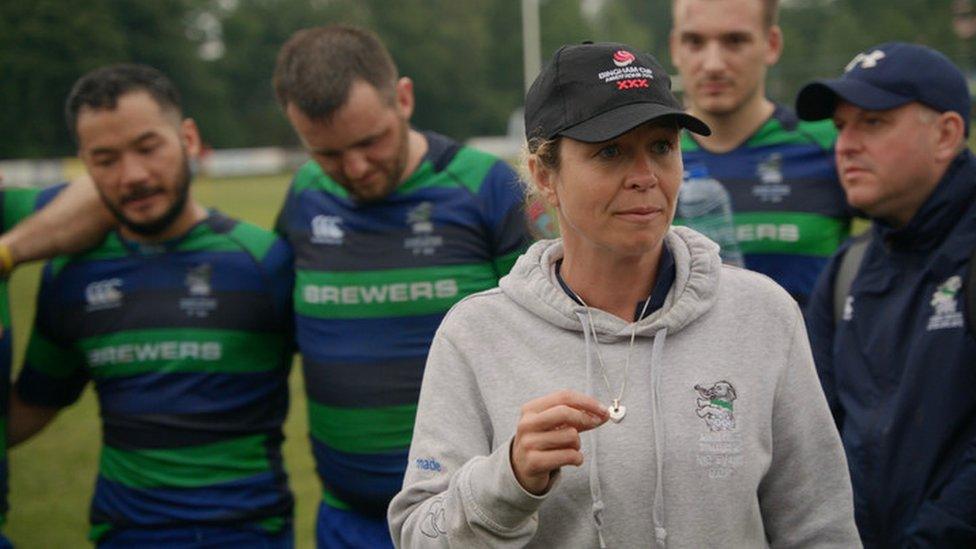
Former Wales international Nic Evans delivers a team talk to the Kings Cross Steelers

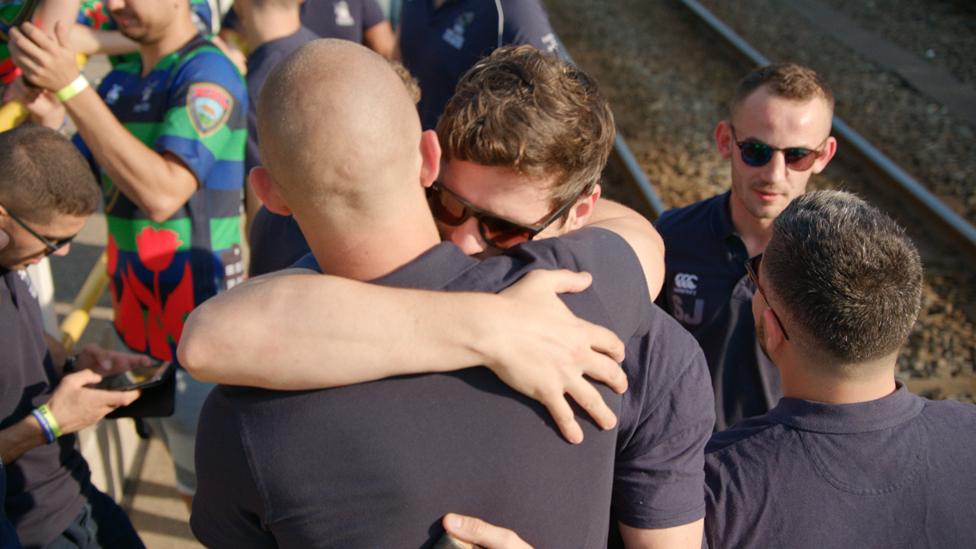
Simon Jones embraces a Steelers team-mate
Like Ashton-Atkinson, Jones finds the team helps him to battle depression and rediscover his love of a sport he'd virtually abandoned.
Former Wales international Evans, meanwhile, tells how she has had to overcome sexism in the male-dominated sport from an early age.
"I think in the gay world [too] there is a lot of misogyny, and it is an issue that needs to be addressed," notes Ashton-Atkinson.
"It's a lot harder to be a gay woman, and then there's the whole spectrum of LGBTQI people which have an even harder time."
'Drewalicious'
Yet the star of the show is undoubtedly Drew McDowell, a tough-tackling hard man on the pitch and a "fabulous" drag queen off it.
The American, 38, had always enjoyed being the centre of attention. It was not until he was asked to be the Steelers' official social secretary though for the 2012 Bingham Cup in Manchester that "Drewalicious" was born.
"None of us had done make-up before or danced in heels, which I learned very quickly is a very difficult thing," says player-coach McDowell.
"I applaud all women who do it on a regular basis!"
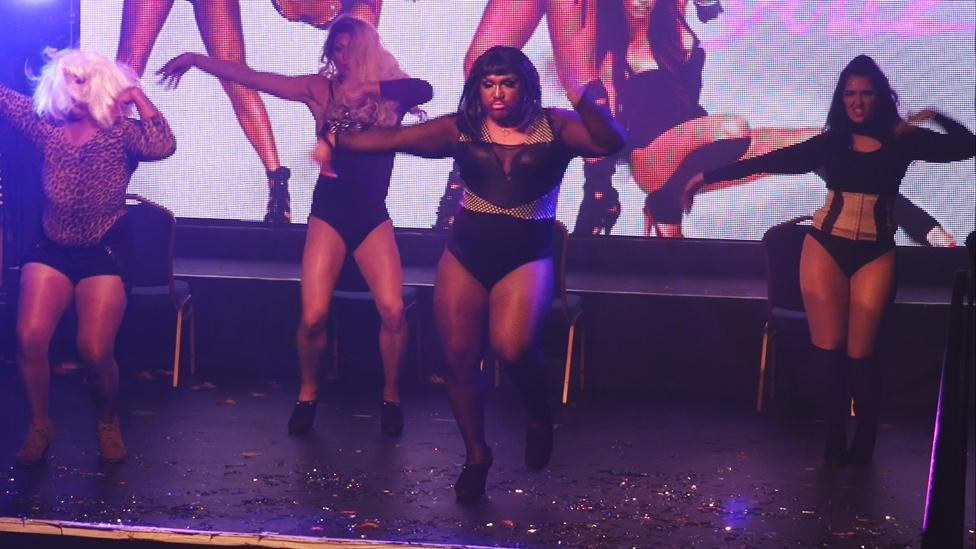
Andrew McDowell, aka Drewalicious, says drag is "a big part of gay culture"

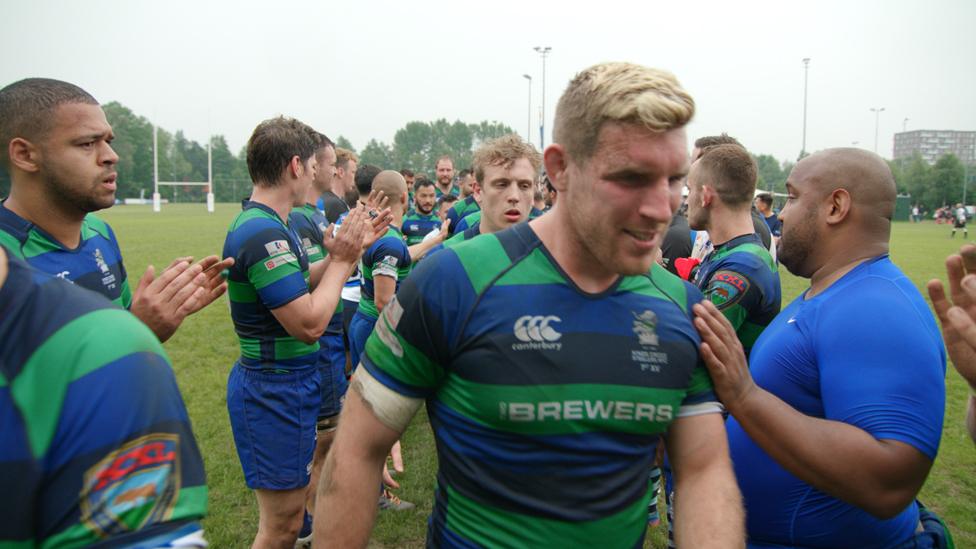
McDowell (far right) and Jones (second left) found playing for the Steelers changed their lives
His drag show, which saw him develop into the character Coco Extra, fast became a highlight on the club's fundraising social calendar.
Worried he might seem less "dateable" if he wasn't viewed as "a masculine gay man", however, he did not publicise it much at first.
"I think even in the gay community we still struggle with that identity crisis of, 'Do we need to fit into one box?'" he adds.
"We have all these sub-set groups, such as you're 'a bear', 'a twink' or 'a muscle queen'."
"Then RuPaul's Drag Race comes out and everyone wants to be a drag queen!" he laughs.
Tough and fluid
The potential to be both "the toughest rugby player" and also proudly gay and "more gender-fluid" is something McDowell views as being "two sides of the same coin".
Historically, though, this has not been the popular view.
In either code of professional men's rugby only a handful of players - including former Wales star Gareth Thomas, ex-Saracens player Sam Stanley, retired Halifax prop Keegan Hirst and, more recently, former Wallaby Dan Palmer - have publicly come out as gay.
Some of Steelers' opponents, McDowell notes, have had their egos damaged by losing to a team of gay men, and some homophobic comments have been heard. But he believes ideas about gay sportsmen are changing, particularly among the younger generation.
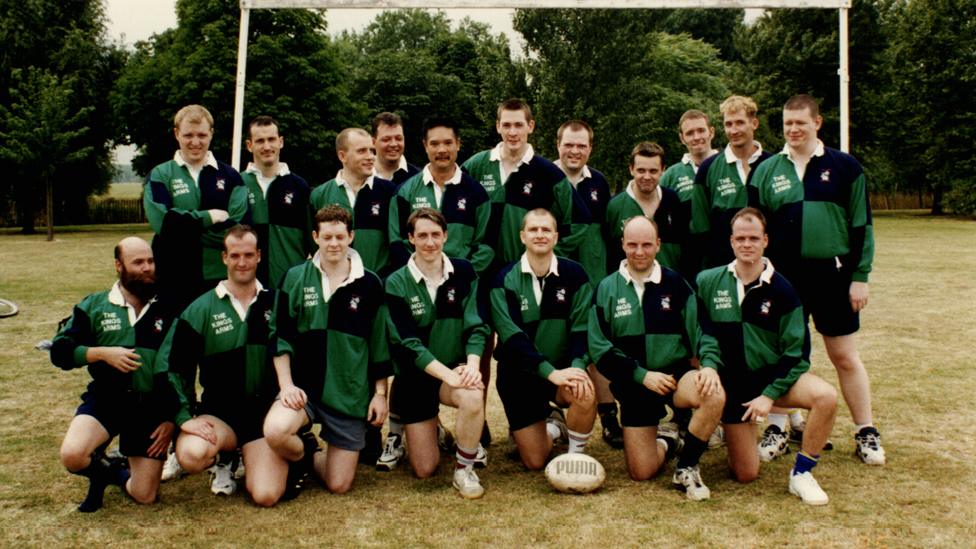
Kings Cross Steelers formed in 1995
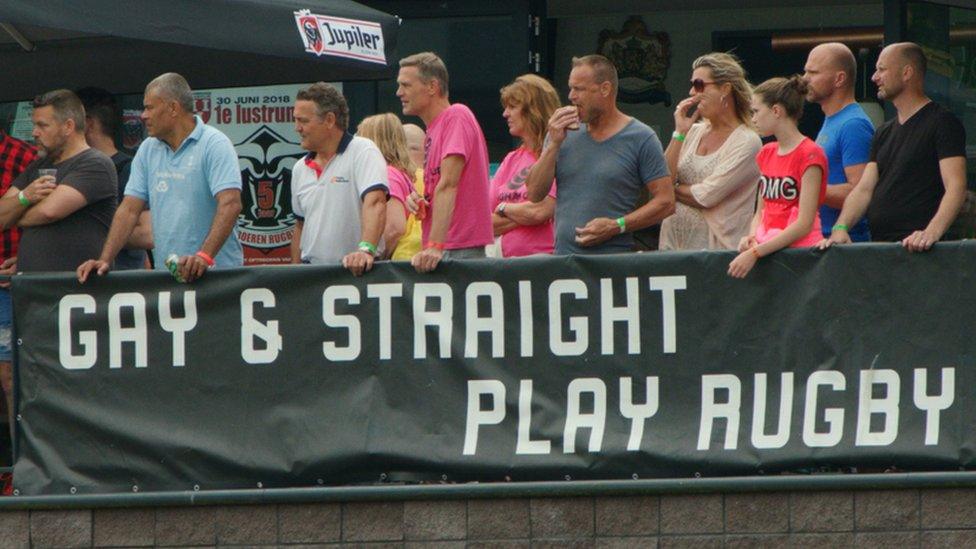
Steelers fans makes their feelings on inclusivity clear. The club welcomes gay, bisexual or straight players
The definition of what it means to be a man, he says, is "very much evolving over time".
"You see such massive support for the LGBT community from individual players and from the actual clubs themselves," says McDowell.
"The fact they came out and spoke against Folau... makes it known to other young gay kids who want to play sport that actually, 'It's OK'.
"'I can walk on to that field and know that my team-mates are going to support me, because they know I'm a good player'. That's what they care about the most when you're on the pitch, regardless of your sexuality."
Steelers: The World's First Gay Rugby Club premieres online at the Glasgow Film Festival and will be available to watch from Friday, 26 February-Sunday, 7 March.

Follow us on Facebook, external or on Twitter @BBCNewsEnts, external. If you have a story suggestion email entertainment.news@bbc.co.uk, external.
Related topics
- Attribution
- Published2 March 2020
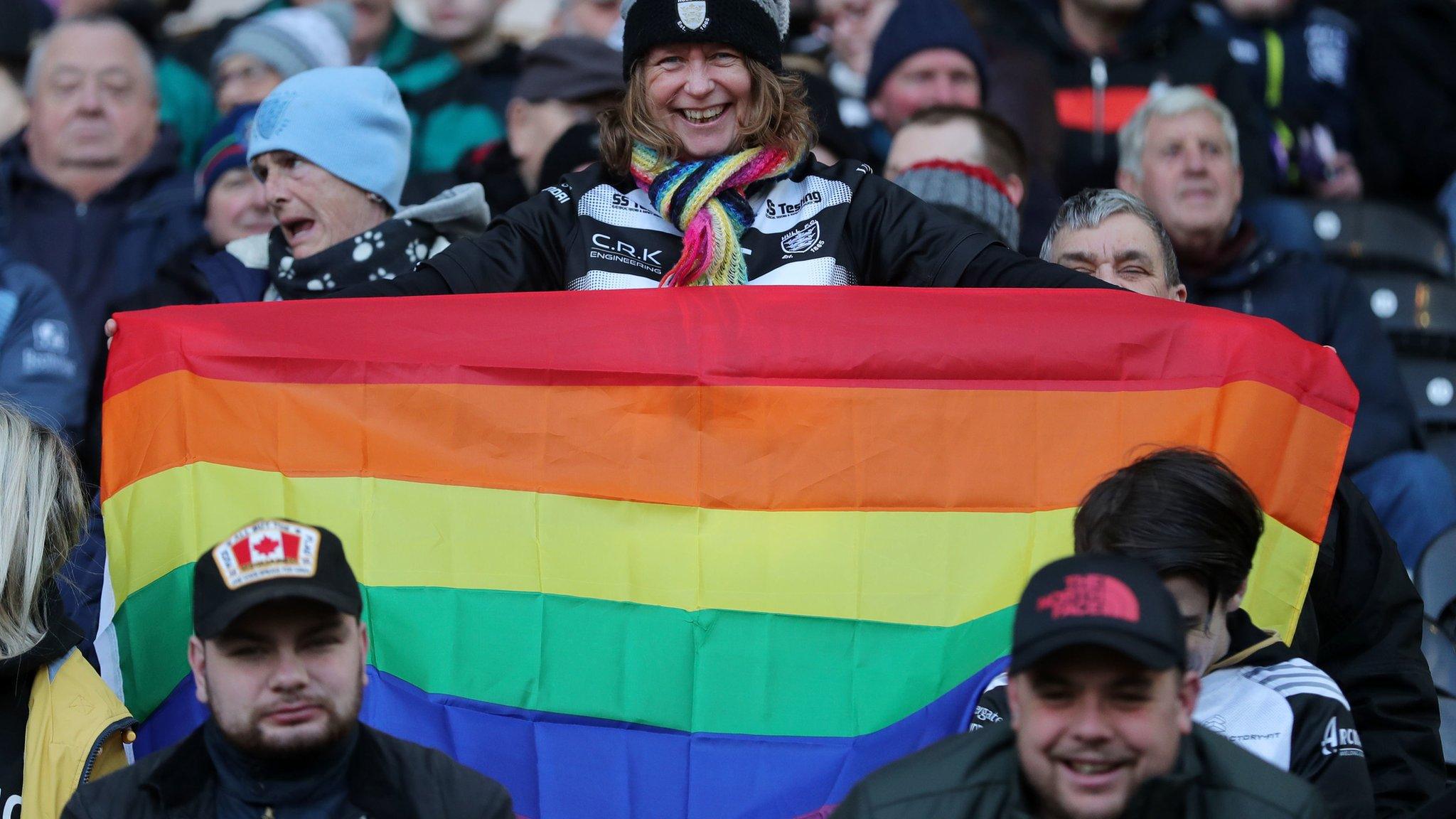
- Attribution
- Published28 February 2020
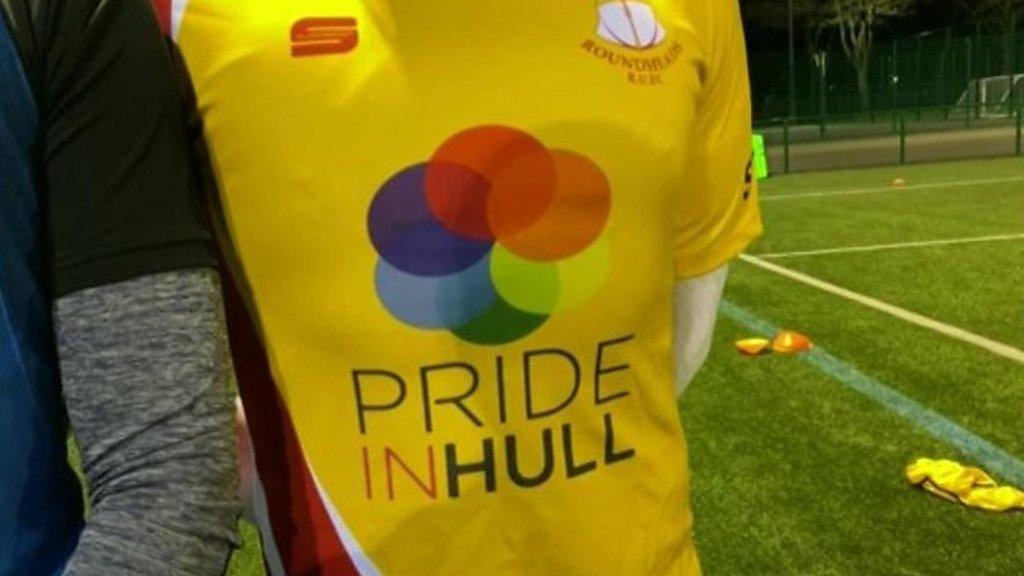
- Attribution
- Published4 February 2020
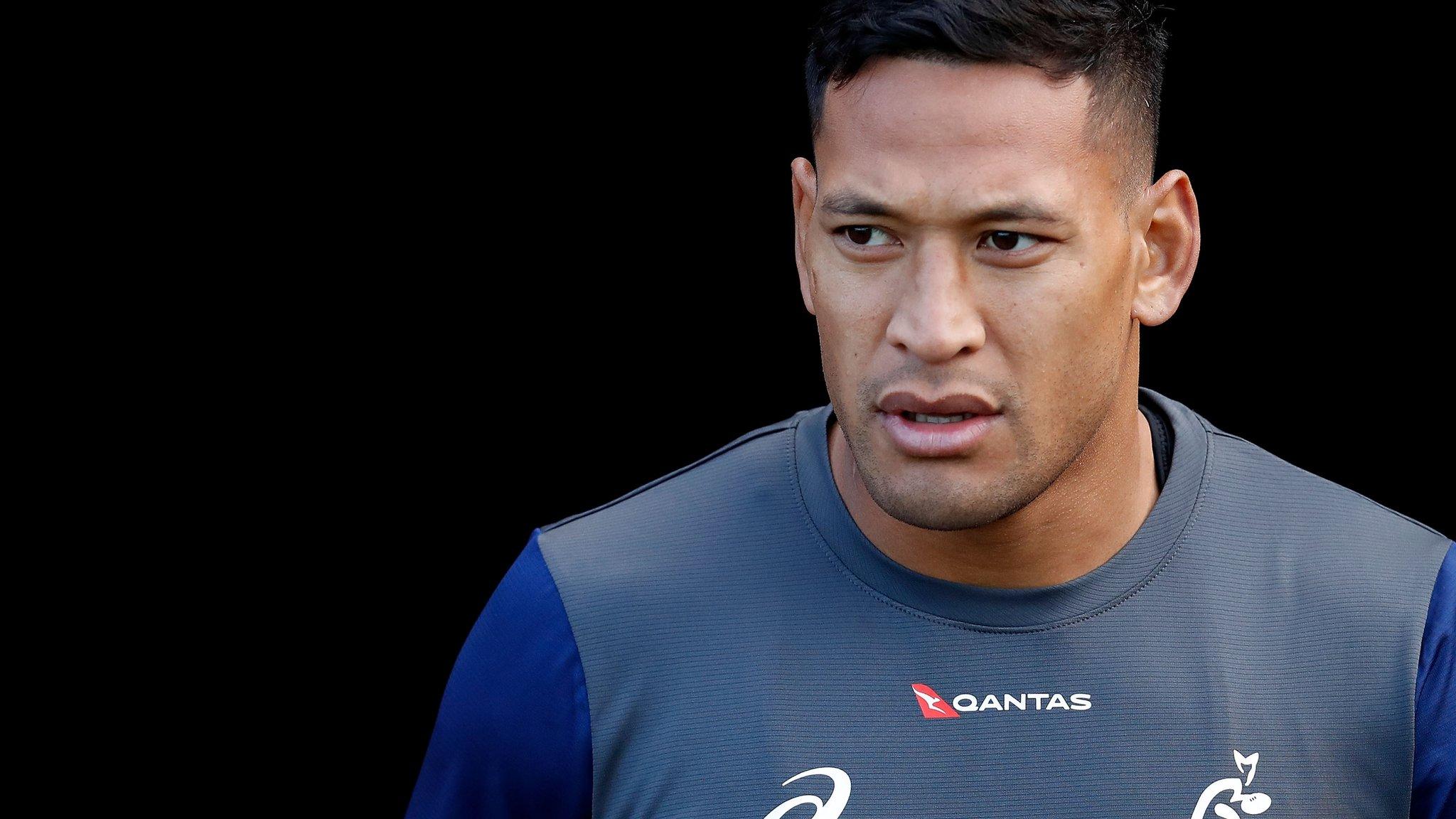
- Attribution
- Published4 February 2020
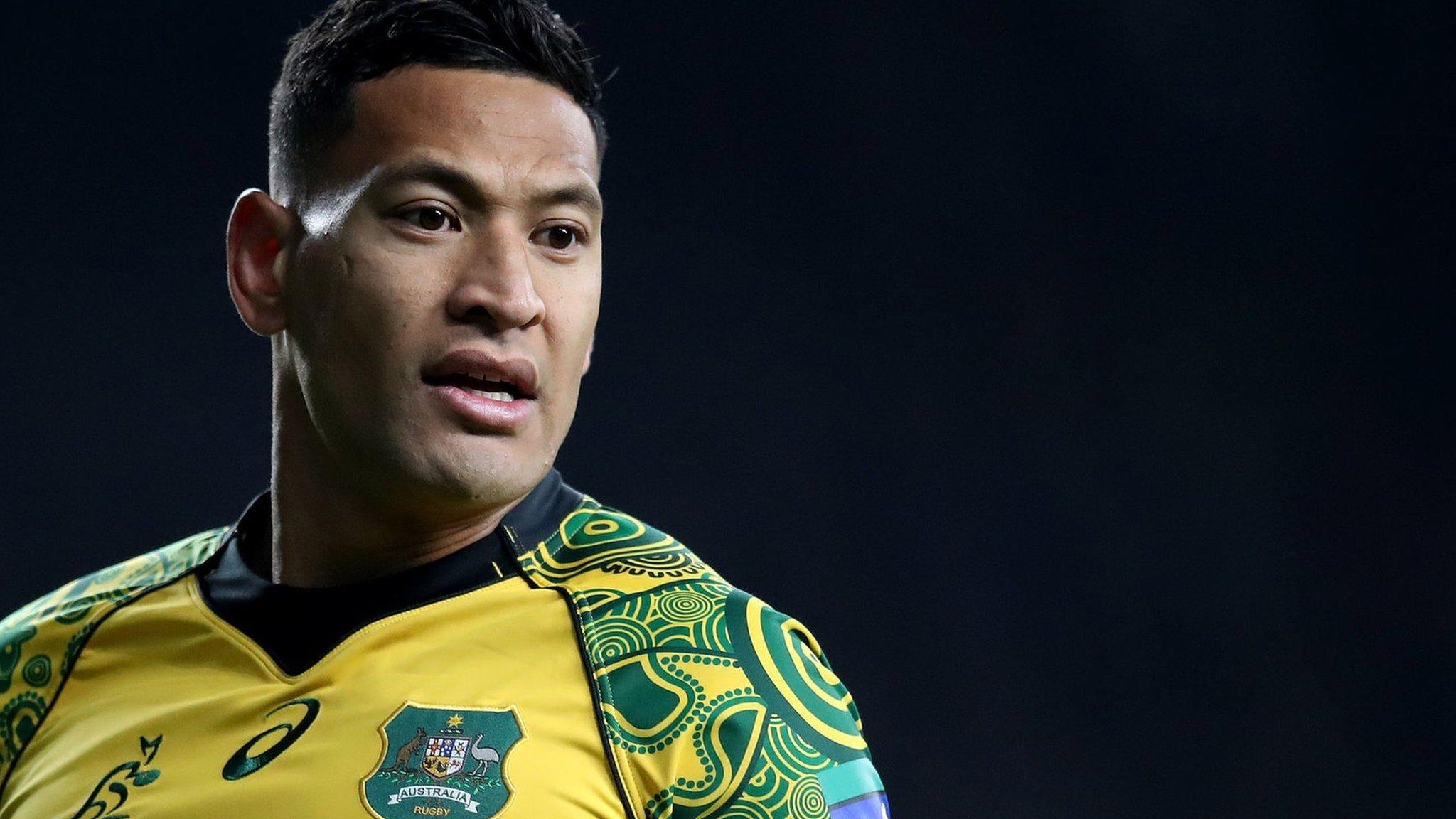
- Published4 December 2019
